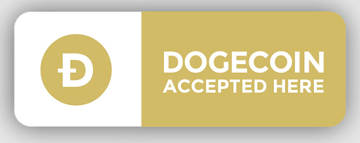Digging deeper into what is happening with our
banks in America, some of the news I have read
and listened to brought up a few questions for me
to figure out.
Why inflation is worst than a recession?
Why did government redefine the word inflation?
How does the government benefit from inflation?
Who does inflation hurt?
Who does a recession hurt?
What is the money supply?
What does it mean when the money supply is negative?
How does this effect the real estate market?
What happens when interest rates continue to rise?
What is operation choke point?
Lets start with why inflation is worse than a recession. Inflation occurs when there is a sustained increase in the prices of goods and services over time, resulting in a decrease in the purchasing power of money. This means that your money will buy less than it did before, and the cost of living will increase. On the other hand, a recession is a period of economic decline where there is a significant decrease in economic activity, often leading to job losses and decreased income. While both inflation and recession can be detrimental to an economy, inflation can lead to a vicious cycle of rising prices and reduced spending, which can be difficult to reverse.
In terms of why the government redefined the word inflation. In the past, the definition of inflation referred only to the increase in the money supply. However, as our understanding of economics has evolved, the definition has been expanded to include the increase in prices of goods and services. This allows for a more accurate representation of the impact of inflation on the economy and the purchasing power of individuals.
Now, how does the government benefit from inflation? Well, governments often have large debts that they need to repay, and inflation can make it easier for them to do so. As the value of money decreases, the real value of their debts decreases as well. Additionally, inflation can also increase economic growth by encouraging spending and investment.
However, inflation can also hurt individuals and businesses, particularly those on fixed incomes or with limited resources. It can lead to reduced purchasing power, decreased savings, and increased uncertainty. A negative money supply, which refers to a decrease in the amount of money in circulation, can also have similar effects.
When it comes to the real estate market, a negative money supply can lead to decreased demand for real estate and lower prices. Additionally, rising interest rates can make it more difficult for individuals and businesses to obtain loans, which can also decrease demand for real estate.
Speaking of interest rates, when they continue to rise, it can have a number of impacts on the economy. Higher interest rates can make borrowing more expensive, which can reduce investment and spending. It can also lead to decreased demand for goods and services, which can lead to job losses and decreased economic activity.
Operation choke point was a program launched by the U.S. government in 2013 that aimed to crack down on fraudulent businesses by limiting their access to banking services. While it was intended to protect consumers, it was criticized for unfairly targeting legitimate businesses and restricting their ability to conduct lawful transactions.
A book I highly suggest reading that talks more in depth about these topics as well as how and why the federal reserve was created is The Creature From Jekyll Island. I will admit this book is lengthy so if you are short on time there is an audio version of the book to listen to.


.jpeg)






No comments:
Post a Comment